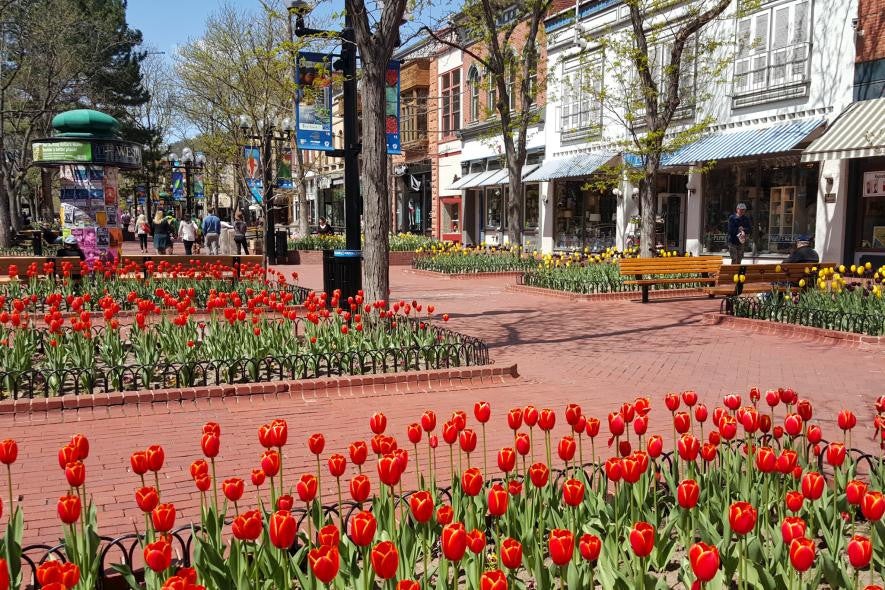We may earn revenue from the products available on this page and participate in affiliate programs.
It’s so true that your environment can directly affect your mood—think of the way you feel in a lush, green-filled park, versus a crowded, gray city. While everyone has specific preferences when it comes to living arrangements, scientists got to the bottom of what classifies a city as truly happy—and the results are pretty interesting.
Author of new book The Blue Zones of Happiness Dan Buettner and Dan Witters of Gallup set out to create a list of the 25 happiest cities in the United States, by putting together a comprehensive well-being index. Based on 16 different metrics related to people’s physical, social, community, financial, and purpose well-being, the study draws on nearly 250,000 interviews of adults in 190 metro areas in the country. Through these accounts, the team analyzed the factors that informed the way people felt about their lives.
At the very top of the list is Boulder, Colorado, dubbed the happiest city for its miles of dedicated bikeways and green space, sustainable urban development and preservation policies, and overall sense of community. Citizens of this mountainside town are the most likely to walk to work than other cities, giving them a unique edge in the physical well-being categories. Locals reported feeling “active and productive,” which majorly contributed to their overall sense of happiness.
Among other factors in the study, Buettner and Witter tracked characteristics that are statistically associated with doing well and feeling well—such as feeling secure, taking vacations, and having enough money to cover basic needs.
Notable mentions include Charlottesville, Virginia, in the top five for its location at the foothills of the Blue Ridge mountains, and numerous cities in California for outdoor access and community consciousness. Anchorage, Alaska makes the list at number 10 for its stunning scenery and sense of adventure among residents.
The research duo concluded that location-specific qualities of place, community, and opportunity powerfully inform the way we feel about our lives. As Buettner tells National Geographic, in happier places, people smile and laugh more often, thanks to higher rates of socialization, greater access to green spaces, and the general feeling that they’re making purposeful progress toward their life goals.
Many of the same amenities the happiest cities provide correlate with some of the best, most hospitable
places to travelto—so take a look at the full list of the 25 happiest cities in the US as inspo for your next vacation destination.
